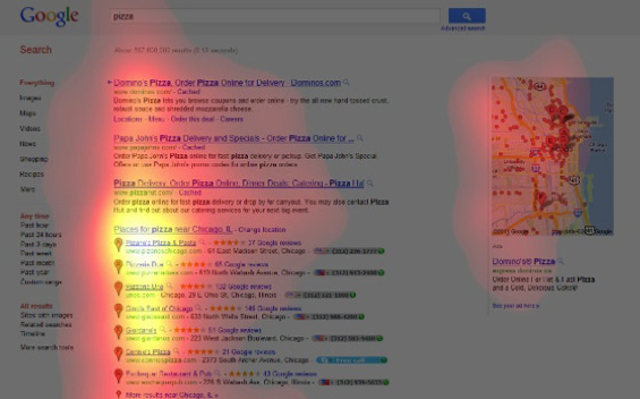6 Best Practices for Modern SEO (2019)
 Google’s search results aren’t what they used to be. Need proof? Just look at its results page. No longer solely comprised of traditional, organic site matches, in 2019, Google lists local maps, images, videos and social cues as well — and it’s affecting more than just what you see.
Google’s search results aren’t what they used to be. Need proof? Just look at its results page. No longer solely comprised of traditional, organic site matches, in 2019, Google lists local maps, images, videos and social cues as well — and it’s affecting more than just what you see.
If you rely heavily on search engines for pageviews and sales, as many businesses do, Google search results will drastically affect how your customers find you. If your business needs to be seen and clicked, take into account the following six search engine tips.
1. Local SEO Is Taking Over
There’s a good probability that a large chunk of the Google searches you perform will display Google Places listings – and consumers are taking notice. SEO software firm SEOmoz did some eye-tracking case studies on Google’s SERP (search engine results page). The results show that users heavily gravitate toward any of Places’ listings, whether they’re mixed into organic lists, concentrated in a group of seven or even listed in the middle of the results page. The heat map above shows the activity around a Google search for “pizza.”

If your business relies on local listings, concentrate on scoring a seat at Google Places. You can do this by using:
- Citations: Ensure that your correct business information is listed in as many (reputable) sources as possible around the Internet. As always, consistency is king. If you write “Blvd.” instead of Boulevard on your Google Places page, make sure your other listings reflect the same.
- Google Places page optimization: Just like your website, make sure your Places page is properly optimized. Include categories that match exactly, and point your Places page back to a city-specific landing page if applicable.
- Reviews: Google will only display reviews from Google, but getting reviews from aggregators like Yelp, Superpages or Trip Advisor will help increase your presence.
2. You Can’t Have Search Without Social
The separation of search and social has officially ended. Social cues such as Twitter shares, Facebook likes and social bookmarking heavily influence search rankings. Essentially, search results are personalized for each person. With any SEO campaign you put into motion, include a social aspect to it to facilitate information sharing.
3. Think of People, not Robots, When Optimizing Keywords
People search in Google because they have a question. Anticipate those questions — whether about the best style of yoga pants or where to get the lowest mortgage rate. Your keywords and the content on your pages should reflect the answers to those questions. Keyword research is tedious, but it’s arguably the most important aspect of SEO. Transition away from thinking of keywords like data, and put more of an emphasis on the person who will be typing in that keyword.
4. Content Links Are King — Good Writers Are Sorcerers
Google is not stupid — it can spot paid and spam links. For the most effective long-term SEO strategy, move the focus back to great content, both on your website and across other sites. Guest blogging is great, for instance, but to get a leg up on your competition, target blogs that aren’t direct matches to your industry.
For example, a client of my company sells golf carts, so we wrote a blog post about the most tricked-out golf carts for tailgates, and the link we got back was one their competitors didn’t already have.
5. Check your Backend: Schema.org, Microformats and Rich Snippets
The Big Three (Google, Yahoo and Bing) have worked together to develop Schema.org, a set of website standards that will tell search engines what your site is about, making it easier for those engines to read the site’s data and index accordingly.

By using rich snippets, for example, you’re able to tell Google what information to feature in SERPs: product reviews and prices, upcoming events, recipe cooking times, etc. The added data will increase your click-through rate because users are able to preview more about the link before they commit to the click.
6. It Doesn’t Mean Anything Without Data
Whether you’re a one-man SEO show for your company or working in an agency with several clients, your site needs to see results. While ranking reports of keywords is still a great indicator of progress, personalized searches make it difficult to get the most accurate readings. Plus, when Google defaulted to private searches for users signed into their Google accounts, the company made it harder to track how people arrive at your site.
Start relying more on simple key performance indicators (KPIs) to show results, for instance, the number of landing pages you have, the bounce rate of those pages, and the number of keywords driving traffic to each of those landing pages. Google Analytics displays all of this data.
What are some other things you see that are affecting searches, and what are you doing to improve your rankings in these areas?

